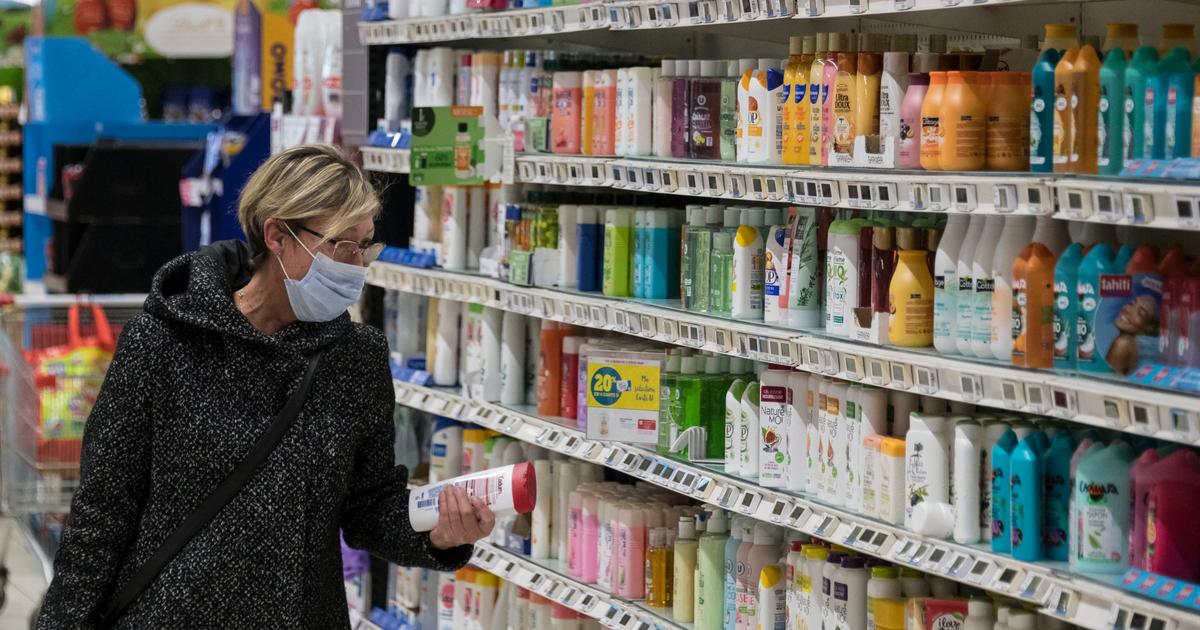“Hygienic insecurity intrudes into many homes.”
The general delegate of Solidarity Donations, Dominique Besançon, is alarmed this Monday, February 26 by the results of the fourth barometer* of the association, which collects donations of non-food products to redistribute them to a network of associations fighting against precariousness .
One in two French people say that the current economic context is pushing them to reduce their consumption of hygiene products due to lack of money.
They were “only” 34% in 2023.
The phenomenon,
“which is taking lasting root in France”
, no longer affects only the poorest French people but
“a much more varied public”
, points out Dominique Besançon.
It's makeup that they most often give up on: 40% of women say they limit themselves on this expense item.
Nearly one in five people limit their purchases of razors (compared to 11% in 2019, during the first barometer), 16% on deodorant (10% in 2019), 13% on laundry detergent (not tested in 2019) or even 12% on toothbrushes (7% in 2019).
The ban, as of March 1, on promotions of more than 34% on hygiene and cleaning products should not improve the situation.
“Permanent arbitration”
“It’s a permanent arbitration between the purchase of food, hygiene products and energy bills
,” recalls Dominique Besançon.
More than one in five people have already had to choose between buying food and a hygiene product.
This precariousness thus leads the French concerned to avoidance solutions: 41% of parents say they control their children's shower gel consumption, whereas only 20% were in this case five years ago.
A third of French people prolong the use of single-use products - always for budgetary reasons -, 23% control the consumption of toilet paper and 11% sometimes wash without soap.
Women also face menstrual insecurity which is still worrying: 16% of women who are menstruated or who have a child who is menstruating at home say they have already lacked periodic protection due to lack of money.
They were “only” 8% in 2019. A rate that explodes among young women, who are 28% in this case.
Young people are most affected
Generally speaking, young people are the most affected by this hygienic insecurity.
“The rates of abandonment of purchases among this public are alarming
,” warns Dominique Besançon, who points out that 41% of 18-24 year olds have already had to decide between a purchase of food and hygiene products.
These are students, young people far from employment, but also
“young workers who have a job but who, with the crises and inflation, are having difficulty making ends meet”
.
In addition to the obvious health problems posed by this hygienic precariousness, we see the emergence of a
“feeling of unease among the people concerned, which leads to social avoidance”
, explains Dominique Besançon.
To the point, for 17% of respondents, that they did not dare to go to a professional meeting.
“This impact on self-esteem is particularly present among young people
,” notes the general delegate of the association.
Solidarity Donations hopes that the shocking figures from its barometer will raise awareness of this often taboo problem.
“There has been progress
,” recognizes Dominique Besançon, such as the anti-waste law (Agec) which requires companies to favor donations for their unsold items, or the free provision of periodic protection for certain audiences.
“But hygienic insecurity has taken root: it must be addressed systemically,”
she believes
.
Public and private mobilization is essential.”
*Ifop study for Solidarity Donations, conducted among a sample of 2,000 people representative of the French population aged 18 and over, interviewed online between November 17 and 22, 2023.

